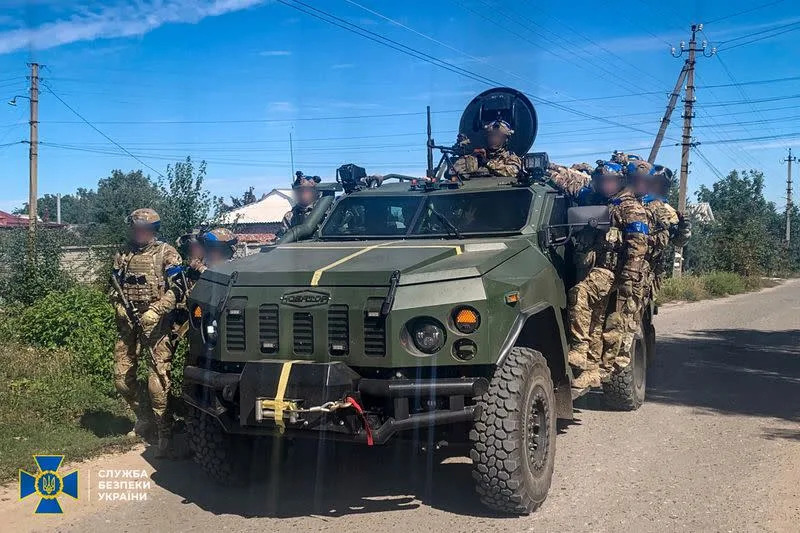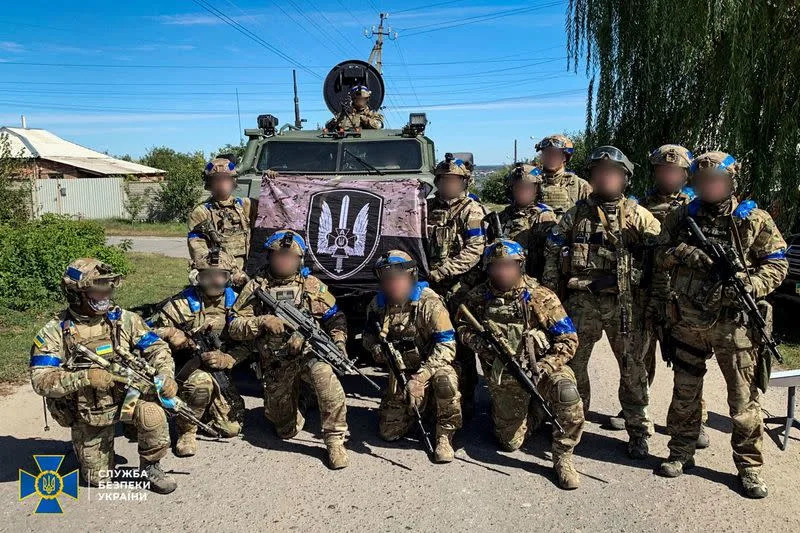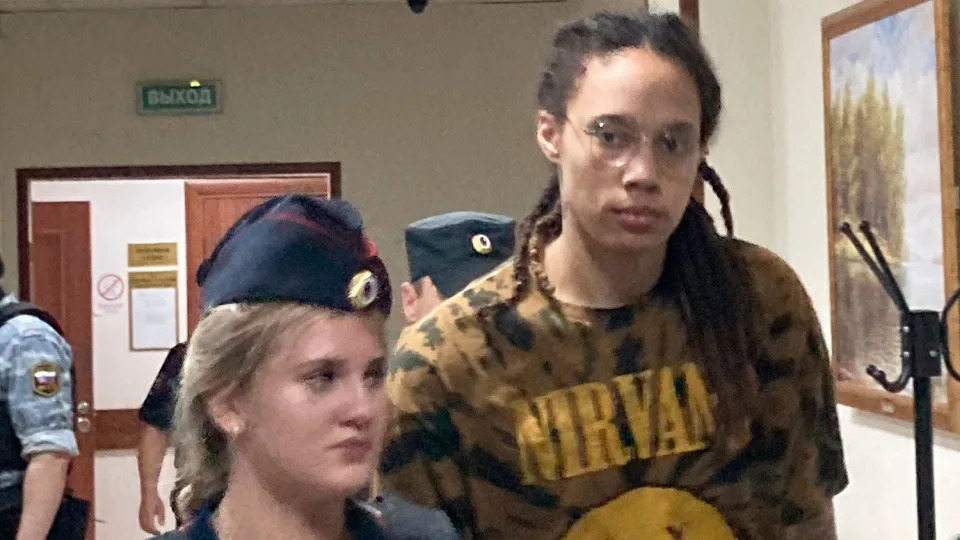Yahoo! News
Ukraine’s stunning counteroffensive in Kharkiv and Donbas
Michael Weiss and James Rushton – September 10, 2022
Ukraine’s stunning counteroffensive in Kharkiv is the type of military action that will be written about and analyzed for decades, maybe centuries.
With rapid speed, the defenders have cut through Russian-occupied positions over the past four days, recapturing as many as 2,500 square kilometers of terrain, according to the Washington-based think tank the Institute for the Study of War, an area roughly equivalent to the combined area of the cities of New York and Los Angeles. Ukraine has also claimed to have killed upward of 1,000 Russian soldiers in as many days, although that figure cannot be independently verified.
But both Russian and Ukrainian sources are in rare agreement about a number of developments.
Both acknowledge that the Russian occupiers have fled Izyum, a strategically important city that the Russian army had been using as its headquarters for operations in the area for months. Ukrainian troops have been visually confirmed to be in the center of Kupyansk, another city in Kharkiv, and Russian forces are said to be retreating from the third of it that they still hold. Kupyansk is a key railway hub and a strategically important location for the Russian army, at the intersection of several railway lines. Unlike NATO nations, Russia’s logistical model is based mainly on moving materiel by train, with motorized transport responsible only for a small distance, at the end of the journey.
The town of Balakliya has also been completely liberated, according to Ukraine’s Ministry of Defense, which posted a video of Colonel General Oleksandr Syrskyi, the commander of Ukrainian Land Forces, standing in the center of the town as soldiers raise Ukraine’s gold-and-blue flag. Other videos show emotional Ukrainian residents greeting their army in Balakliya.
Igor Konashenkov, the spokesman for Russia’s Ministry of Defense, confirmed Russian troops’ withdrawal from Balakliya and Izyum, describing what certainly looks like a rout as a decision to “regroup in order to boost efforts in the Donetsk area.”
Ukraine’s campaign has, remarkably, pressed beyond Kharkiv into occupied Donbas.
Denis Pushilin, the head of the Russian proxy known as the Donetsk People’s Republic, recorded a video of himself fleeing the fighting by car and admitting that the situation around the city of Lyman in Donetsk was “difficult.” There are also unconfirmed reports of fighting around Lysychansk, a city in Luhansk that Russia captured at the beginning of July after weeks of heavy shelling. Ukrainian forces have advanced to the outskirts of Lysychansk, according to the oblast’s governor, Serhiy Haidai.
Taken as a whole, Ukraine’s offensive has decisively shown that it has the manpower, resolve and weapons to prosecute the next phase of a war that many analysts and politicians warned would devolve into a prolonged stalemate or war of attrition. And it comes at a time when Russia has threatened to “freeze” Europe by cutting off gas supplies for the coming winter, as cracks in European Union unity on sanctions have apparently widened. On Sept. 8, the United States announced another security package for Ukraine worth $675 million, much of it ammunition for weapons platforms that have already been provided, including the M142 High Mobility Artillery Rocket System (HIMARS).
Ukraine spent months telegraphing its intent to mount a major counteroffensive in the southern region of Kherson. That campaign got underway on Aug. 29, and has made consistent but unspectacular progress. The Kharkiv operation, however, was totally unannounced — not even hinted at. “Basically, the Russians thinned all their troops out to protect Kherson,” said Dr. Mike Martin, a visiting fellow in the Department of War Studies at King’s College London. “The Ukrainians spotted this, fixed the Russians in Kherson, and kept a reserve that they used to strike through the Russian line east of Kharkiv, and then managed to capture their two main logistics hubs supplying the Russian effort in the northeast and east of the country.”
As a result, Russian frontlines are now collapsing. One video taken somewhere in Kharkiv and posted to Twitter shows retreating Russian soldiers riding on top of a T-72 tank as it runs into an advance party of Ukrainian special forces. The tank immediately starts shedding soldiers before it finally skids around a sharp bend and careens into a tree.
Pro-Russian Telegram channels, which in the past have resorted to denial or rationalization to account for Russian losses, are through coping. They are now in a state of panic or full of violent recriminations for what they see as the Kremlin’s incompetence, if not treachery. Ultranationalists are demanding a mobilization and a declaration of martial law in Russia. Some have even called for nuclear strikes on Western Ukraine to force a capitulation.
Russia’s military bloggers, meanwhile, are clear-eyed about what has transpired in less than a week — and unusually deferential to the enemy. As a British military strategist, Sir Lawrence Freedman, has noted, “At times, it can seem as if the bloggers (in sharp contrast to the propagandists) are talking up the Ukrainians to make their own troops look less bad.”
It is difficult to know where the Russians will decide to make their stand, given that they seem to have little in the way of an operational or strategic reserve and that the Ukrainians have broken through all their pre-prepared lines of defense. More critically, Western-supplied weaponry, particularly the HIMARS, has been pounding Russian ammunition and fuel depots and supply lines around Kharkiv, making any future effort to recapture lost land far more arduous. The Ukrainians have even been pushing up the HIMARS’ bigger, more heavily armored cousin, the M270 MLRS (Multiple Launch Rocket System), to positions close to the frontline, as the Ukrainian advance brings new targets into range.
The rapid withdrawal from the north and northeast at such short notice is likely to cause the Russians problems in other areas of occupied Ukraine. Russian propaganda is being torn down all across Kharkiv and collaborators are forming long queues to leave the area and enter Belgorod, the Russian oblast on the other side of the border.
Even Russian state journalists have taken notice of the evisceration. “Well, brothers and sisters. Have you become depressed? Have you screamed? Have you argued? Have you lost heart?” Andrey Medvedev, a television reporter, posted to Telegram.
“I understand, I agree, it’s been a very difficult day.”



















